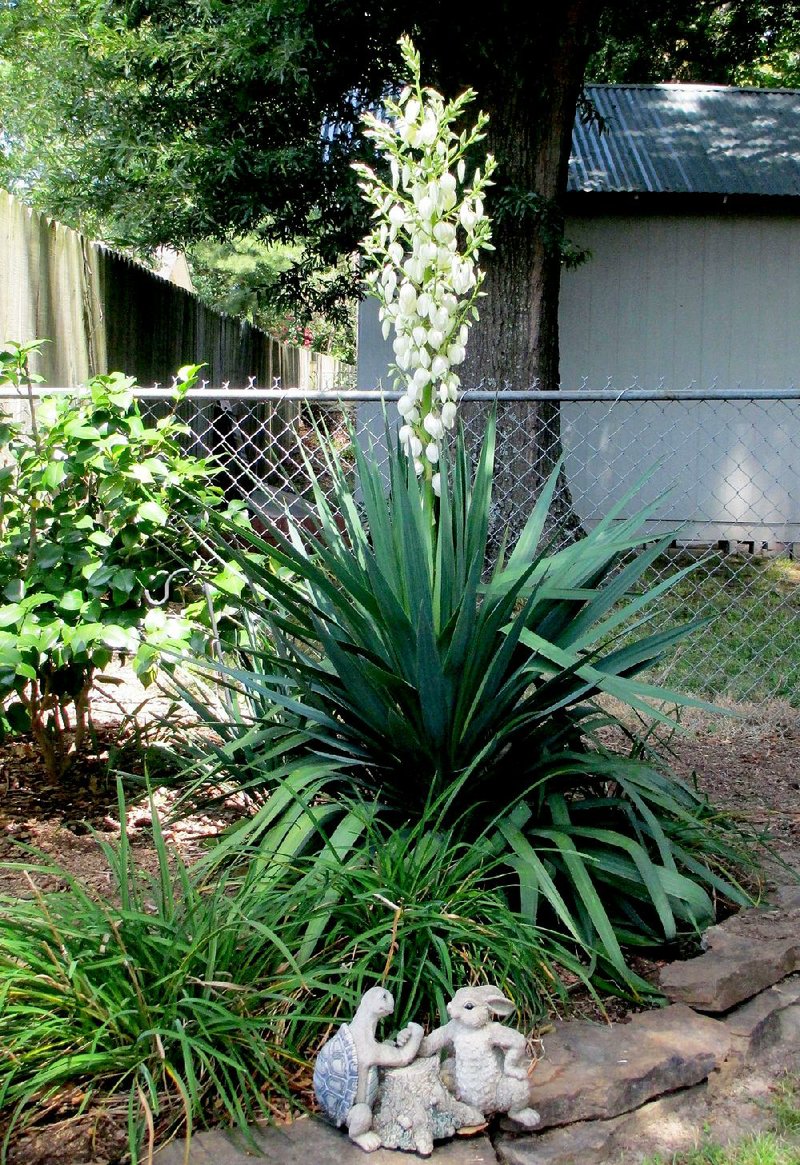Q I was hoping, now that we have received some rain with prospects good for more, that we would have wonderful color in a little over a month. But my wife and I noticed that the Northern and Southern red oaks and the white oaks, especially, on our four acres don't seem to have much of an acorn mast. A few sylvan oaks seem to be in better shape. I know the oaks don't always produce a mast every year. However, a large white oak next to the house has already begun dropping a few dark green acorns that are over an inch long. If there's a small mast, and the Farmers' Almanac is right and we have a hard winter, the deer and squirrels are in for it. What's the situation?
A "Mast" is defined in botanical terms as the nuts or fruits of trees and shrubs, such as acorns, that accumulate on the forest floor, providing food for wildlife. The phrase "a good mast year" refers to a year in which there is a heavy crop of wild nuts. While some believe that a heavy acorn crop is a predictor of a cold winter, just like spoons in the seeds of persimmons and wide black bands on the bodies of woolly bear caterpillars, research shows that the volume of acorn production each year is partly controlled by external factors like precipitation affecting the tree's health and the formation of acorns during different stages of development during earlier years. So more rain this summer wouldn't automatically lead to more nuts. Acorns are produced annually on white oak trees but take two years for red oak species. Let's hope the Farmers' Almanac is wrong -- it is predicting a winter colder than last year's. As for food for wildlife, our mild summer and ample rainfall until late August and now early September have produced a bounty of fruits and nuts on many trees. The late dry spell has caused leaves to begin to fall, but I would say that we are in better shape than we have been at this time of year in the recent past.
Q We live in west Little Rock and have had a terrible time this summer with crabgrass. I was wondering what, and when, I need to do something to kill it before next year. It is growing in a Bermuda lawn.
A Crabgrass, a summer annual, is nearing the end of its growing season. It germinates in the spring, grows all summer, sets seeds and dies with cold weather. This late in the season, I would not recommend spraying with an herbicide. Instead, try to keep it mowed to prevent seed set. In February, apply a pre-emergent herbicide; some brands use the term "crabgrass preventer." Try to avoid using a weed and feed combination, since in February, all you would be feeding would be winter weeds. Bermuda usually does not begin growing until late April or early May.
Q Since none of my big-leaf hydrangeas bloomed because of last winter's weather, when do I prune? The plants are beautiful, full and healthy, 4 to 5 feet tall and just as wide.
A Not now! Flower buds are setting or are set for next year's blooms. Pruning should be done if needed next summer as soon after flowering as possible. If we have another cold winter, give them all the protection you can. If your plants get frozen back and therefore don't bloom, they do grow quickly, but any pruning still ought to be done in early summer so they have time to fill in and produce plenty of flower buds.
Q This plant is growing in the backyard of the home I have been renting for two years. I haven't been able to identify it. The flowering stalk emerged from the base of very sharp, pointed leaves. The white blooms look somewhat like upside-down bells. Total height is about 6 feet. Any ideas on what it is and suggestions for care?
A The plant, called yucca, is in the agave family. It is extremely drought tolerant and forms these huge clusters of white flowers every year. It normally doesn't require much care. Your plant looks quite healthy, and it can produce daughter plants at the base. It does best in full sun and does not like heavy, wet soils. It has sharp leaves, so don't get too close. I have never been a huge fan of yucca, but I do like some of the newer, variegated forms.
Janet B. Carson is a horticulture specialist for the University of Arkansas Cooperative Extension Service. Write to her at 2301 S. University Ave., Little Rock, Ark. 72204 or email her at
jcarson@arkansasonline.com
HomeStyle on 09/20/2014
